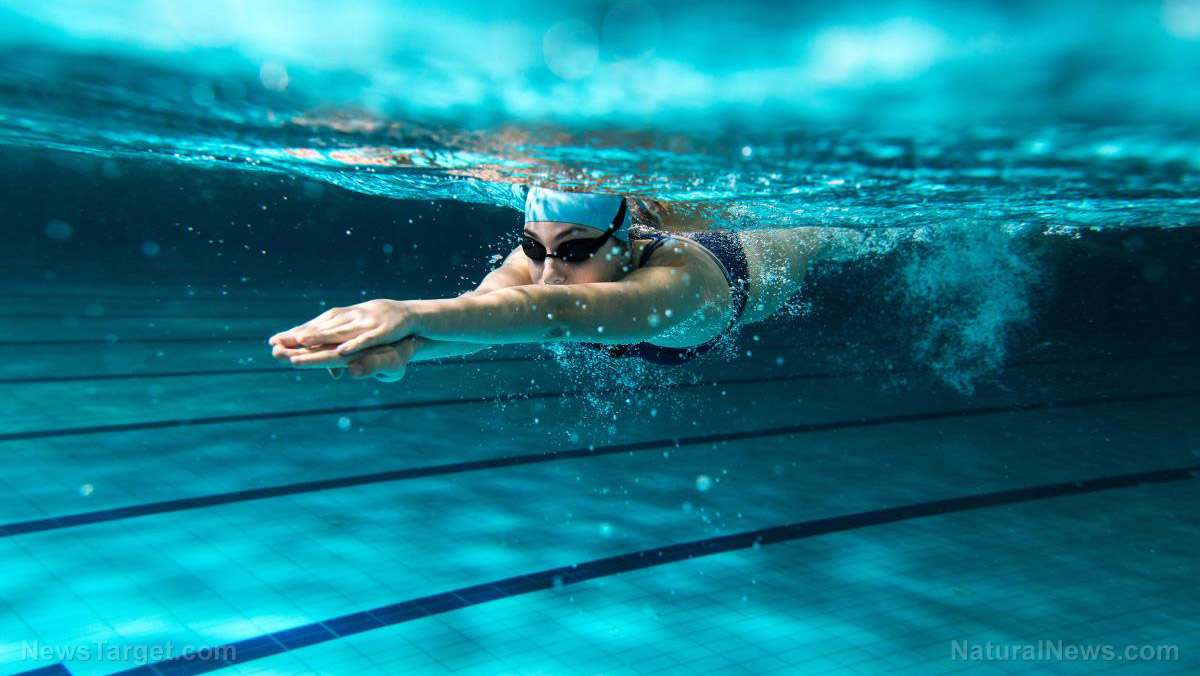A 50-year-old man was recently allowed to compete in a swimming competition intended for teenage girls just north of Toronto, generating alarm among parents that organizers have thus far shown little interest in resolving.
(Article by Calvin Freiburger republished from
LifeSiteNews.com)
Rebel News
reported that during the October 20 Richmond Hill Aquatic Centre Fall Classic swimming competition, one of the 10 competitors in one of the races, “Melody Wiseheart,” was actually 50-year-old Nicholas Cepeda, a York University professor whose research specialties include children and youth. Every other participant was age 13-14.
Event organizers initially denied that Cepeda had participated in the event until confronted with his name on a copy of their schedule. They “eventually” relented,
Rebel’s David Menzies reported, “but they didn’t want to get into a debate about gender and age.” Representatives for governing bodies Swimming Canada and Swimming Toronto were reportedly “too busy” to answer questions about the incident.
“We wanted to know if Nicholas got to use the female change room and bathroom,” Menzies wrote. “Notably, none of the concerned parents wanted to come on camera with their justified grievances. This was no doubt due to our prevailing reality of cancel culture.”
Swimming Canada’s Nathan White did give a
statement to True North, which claimed that Cepeda had been in an “open category” without an age limit, though he conceded that “it certainly seems like an anomaly” given every other participant at the overall event was 17 or younger.
A vendor advertisement on the Richmond Hill Aquatic Club’s
event page features a photography company offering “professional action pictures of your child,” indicating the event was understood and/or assumed to be for minors.
“It’s disturbing. It’s a male person going into a girl’s race, which is absolutely unethical,” former Athletics Alberta president Linda Blade commented. “If any man can come along and check a box and say, ‘Oh no, I’m actually a girl today,’ that’s just wrong.”
“It’s dangerous for little girls and women,” she added.
“Women’s sports need to be segregated from men, and that’s not hard,” Blade argued.
Mandatory inclusion of gender-confused individuals in opposite-sex sports is promoted as a matter of “inclusivity,” but critics note that indulging “transgender” athletes undermines the original rational basis for having sex-specific athletics in the first place, thereby depriving female athletes of recognition and professional or academic opportunities.
There have been
numerous high-profile
examples in
recent years of
men winning women’s competitions, and research affirms that physiology gives males distinct athletic advantages that cannot be fully negated by hormone suppression.
In a 2019 paper published by the
Journal of Medical Ethics, New Zealand researchers
found that “healthy young men [do] not lose significant muscle mass (or power) when their circulating testosterone levels were reduced to (below International Olympic Committee guidelines) for 20 weeks,” and “indirect effects of testosterone” on factors such as bone structure, lung volume, and heart size “will not be altered by hormone therapy;” therefore, “the advantage to transwomen [biological men] afforded by the [International Olympic Committee] guidelines is an intolerable unfairness.”
Forcing girls to share intimate facilities such as showers or changing areas with members of the opposite sex also violates their privacy rights, subjects them to needless
emotional stress, and gives
potential male predators a viable pretext to enter female bathrooms or lockers by simply claiming transgender status.
In the United States,
both aspects of the issue have been highlighted by University of Pennsylvania swimmer William “Lia” Thomas, who reportedly retains male genitalia and is still attracted to women yet “identifies” as female and lesbian. Thomas quickly started dominating women’s swimming after switching from the men’s team and has caused his female teammates unrest due to sharing lockers with them. Yet the National Collegiate Athletic Association (NCAA) has reportedly pressured swimmers and their parents against speaking out.
Read more at:
LifeSiteNews.com
 Parler
Parler Gab
Gab










